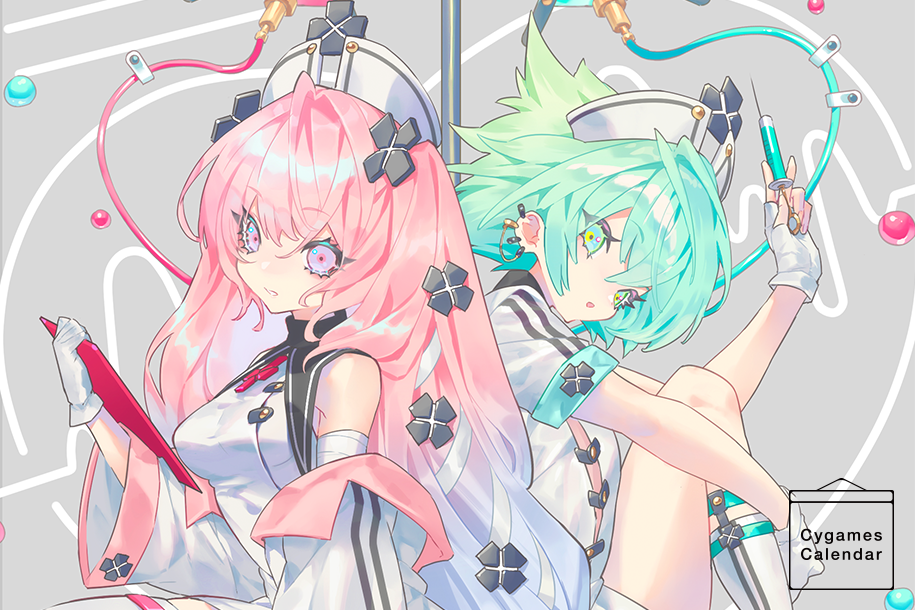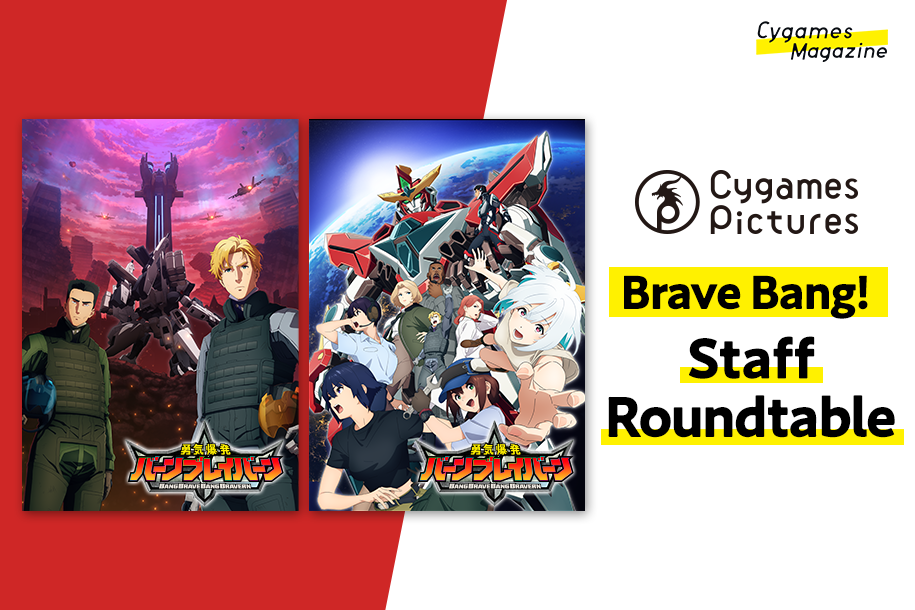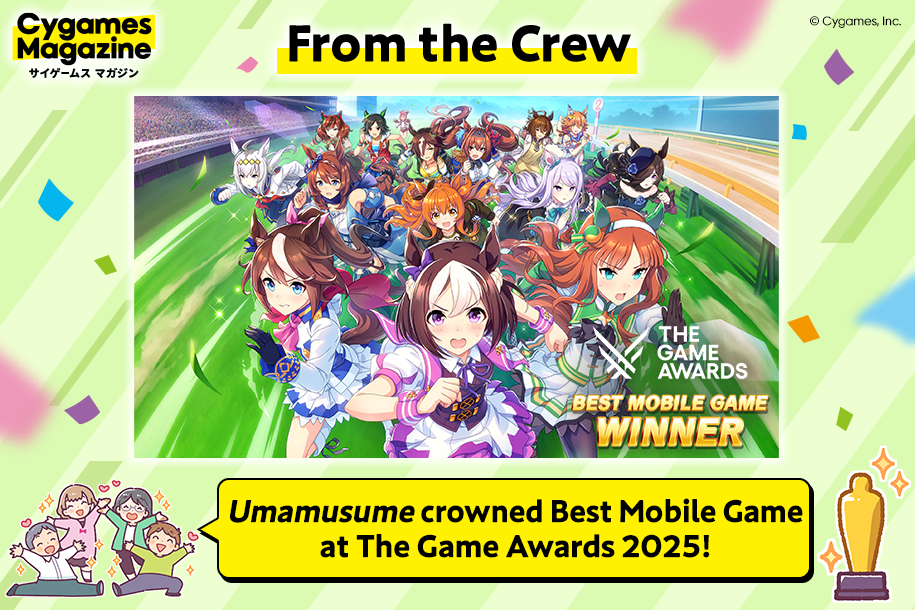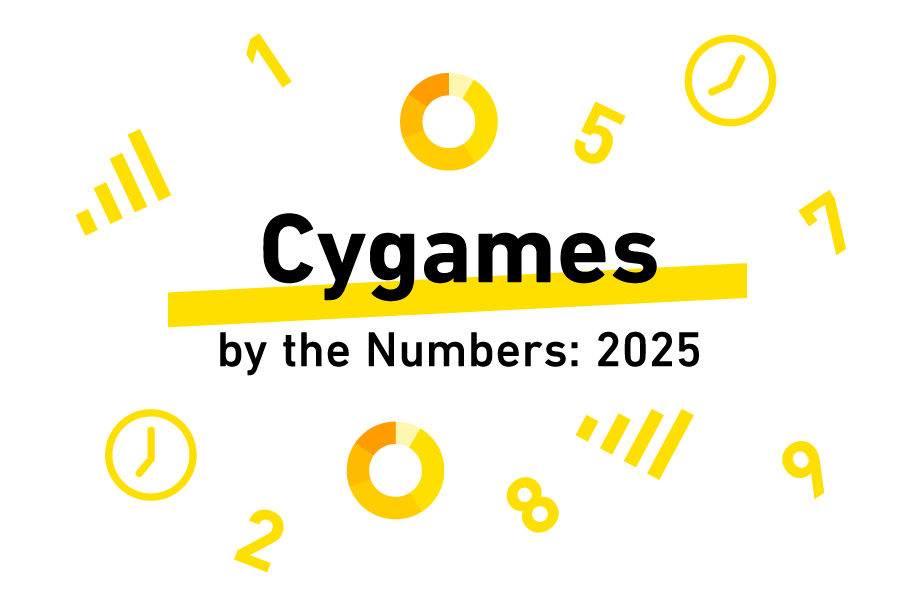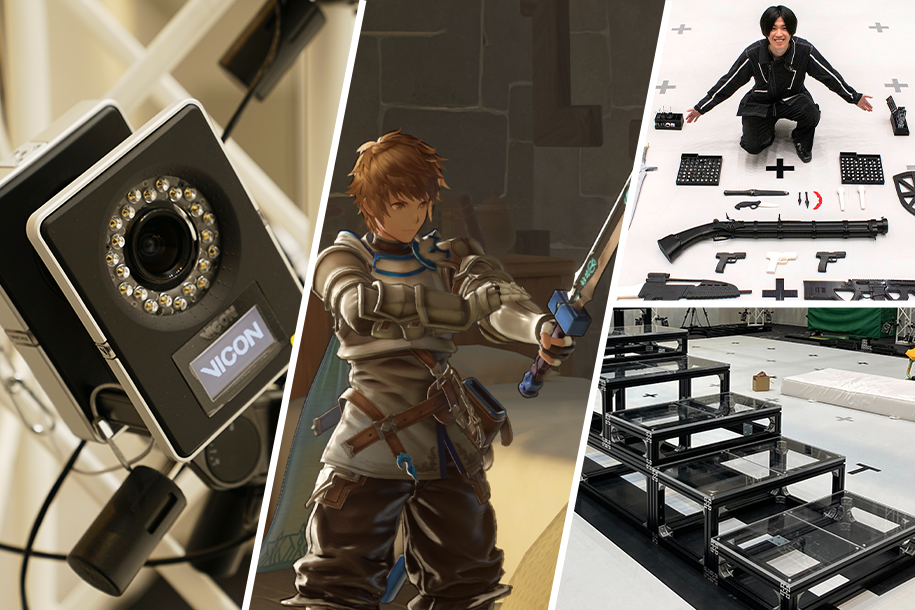“The Improvement Guys” in Cygames: Introducing two key departments that support the company and content!
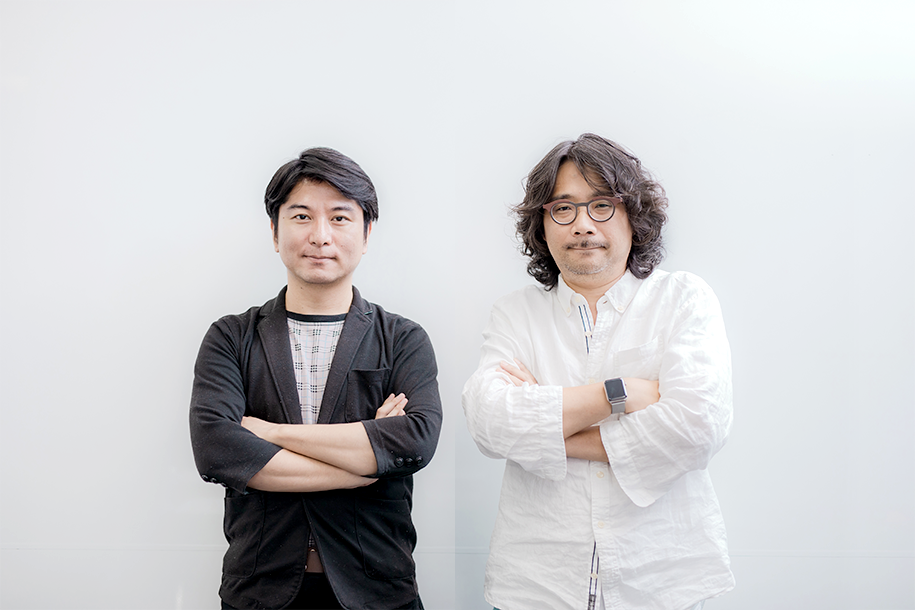
Cygames produces a wide variety of content including games, manga, and anime. The growth of the company has led to an expansion in the scale of development and an increase in the number of people involved in each project. In order to continue to produce quality content, the degree to which complicated processes can be optimized and the extent to which more efficient systems can be utilized are both key factors.
The creation of these systems and the improvement of operations within the company are thought up and implemented by two departments: Development Productivity and Core Technology Development.
We talked with the two managers of these departments, known collectively as “the improvement guys,” about how each department got its start and the roles that they play!
- Development Productivity Department Manager Shuichiro
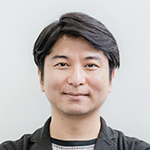
- After working for a major console game developer, Shuichiro joined Cygames in 2016. His role involves managing overall optimization, which includes improving development project processes, enhancing team management initiatives, and unification of corporate knowledge. In 2018 he co-established Development Productivity, a department to promote the improvement of development processes throughout Cygames. Today, he continues to strive to improve development and work processes within the company.
- Core Technology Development ManagerMasaru
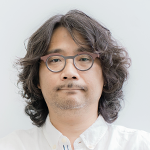
- After working for a major console game developer, Masaru joined Cygames. Masaru has a diverse career portfolio working in R&D and product management for mobile apps, VR content, game engines, and graphics. In 2018 he co-established Development Productivity, a department to promote the improvement of development processes throughout Cygames, and the Core Technology Development department, an initiative to use technology to support development. His roles involve improving development processes within the company.
Starting out with just two people! What are the Development Productivity and Core Technology Development departments?
First, let’s start with a brief explanation of the roles the Development Productivity and Core Technology Development departments play.
Shuichiro: Development Productivity is a dedicated department that designs workflow systems with overall optimization in mind. Our principal duties are to collect comments from inside the company concerning desires to make certain things more convenient or find out what problems people are having, and then develop and propose improvements that resolve these issues.
Masaru: Core Technology Development is a dedicated department that provides cross-department technical support within the company. When the Development Productivity department receives inquiries, we handle the vetting of any required external services. We’re also in charge of developing new tools Development Productivity will need to carry out its tasks.
So Development Productivity is the brains and Core Technology Development is the frontline corps. It sounds like mutual cooperation between them is important.
Shuichiro: It is. The two departments were established at almost exactly the same time, so I consider them a pair. At first, it really was just the two of us.
Masaru: Development Productivity came first as a department dedicated to the consideration and proposal of improvements to internal workflow and systems, but then it became apparent that we also needed those frontline troops to actually make the improvements.
That led to the establishment of the Core Technology Development department, an independent group of engineers who aren’t affiliated with specific departments or projects but rather work across them all.
What were the reasons behind deciding to create departments focused purely on improving the working environment?
Masaru: The increasing capabilities of devices and the diversification of user needs leads to an exponential increase in the scale of content development and an expansion in the number of employees.
As devices continue to become more powerful, they allow for the creation of content that uses a variety of different technologies. However, as more and more things become possible, it also increases the volume of information, knowledge, and people involved in creating the content, while also making the development flow more complicated.
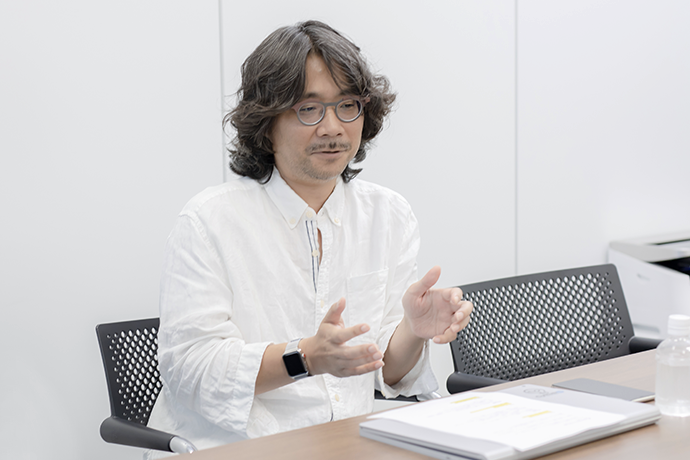
While it would have been possible to try restricting the scale of development to just those things we wished to achieve with the content, that kind of reductive improvement didn’t really match Cygames’s vision to create the very best content.
That led us to believe that a dedicated department was required to propose efficient workflow ideas and to investigate, develop, and implement easier to use systems.
Shuichiro: Optimization and productivity boosts lead to a reduction in the number of staff man-hours. That way, you can secure time to focus on making more interesting and high-quality content. That’s really our goal. The vision of both departments since their founding has been to ensure our employees have the time they need to make our content as engaging as possible.
The origin story of the improvement guys! The issues that being former developers bring to light, and why improvements are required in today’s climate.
I see. Moving on to another topic, what kind of positions do the members comprising your team tend to hold?
Shuichiro: The Development Productivity department is comprised of a team engineers and assistants who mainly provide support. There is also an independent Development Productivity department dedicated to the designer field. That one is made up of a number of designers.
Masaru: The Core Technology Development team is comprised entirely of engineers. Actually, both of us were originally engineers and so we’ve got a lot of experience working on the development side of things!
You don’t say! I thought for sure that you’d built up your careers in departments outside of development.
Shuichiro: We were knee-deep in the thick of things.
Masaru: Though we’ve left that behind and now are just the two improvement guys!
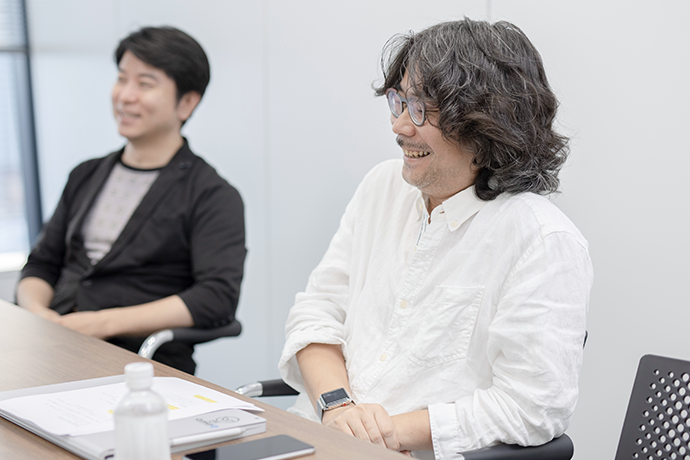
We’d love to hear more about your career paths!
Masaru: I’ve been working in the game industry from graduation right through to today. I started out in a company in Aichi. I was actually hired as a planner in that company, but I thought I’d been hired as a programmer. I’d been involved with 3D related research when I was a student and 3D games had just begun to become popular, so my position ended up changing from planner to programmer. That was the start of my career.
After that, I started working at a different game company and continued with the development of various titles as a 3D related programmer, while also starting to work on the network and tool-related tasks. Then I changed jobs again, but that company ended up folding. Which led to me going freelance for a while.
So you’ve experienced the end of one company. And then you came to Cygames?
Masaru: That’s right. I joined in 2014 and was involved as an engineer in various projects prior to the establishment of the Core Technology Development Department. I often took part in jobs requiring a high level of technical expertise or that had tight deadlines, and started to operate as a kind of a jack-of-all-trades in terms of game improvement.
You really were neck deep in development! Shuichiro, what about you?
Shuichiro: I started out working part-time at a company making desktop accessories, but after just one month I struck out on my own as a freelance engineer. I also experienced a period with no work at all. I think it was a pretty crazy start for someone entering the workforce.
When I was a freelancer, I took on jobs like website design and game programming, but after a little while, I entered a publishing company and started developing the CD-ROM applications that came with books. But I mainly made loads of mini-games using C++. That’s when I learned the fundamentals of application creation.
Work was intense back then. I’d make around thirty applications a month and it felt like I was releasing something every day. I often ended up sleeping at the company for days on end.
It might just be a sign of the times you were working in back then, but that sounds pretty hard!
Shuichiro: After about five years of doing that, I moved on to a different game company. There I was involved in the development of an ongoing series title, and handled things like the battle system and character customization functions.
When that company split into smaller companies, I moved into a back office role. At the time, the company was working to improve project management, so I got involved with that.
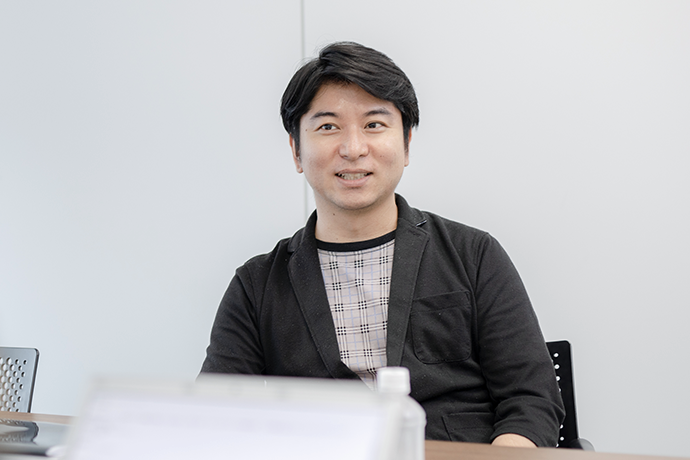
Working in the back office of a new company meant I had to do all sorts of other jobs apart from project management. These included human resources, accounting, and business planning. I was also involved in developing bases of operation overseas.
I worked as an engineer for fourteen years and then worked in the back office, which was difficult, but I think the experience really expanded the work I’m capable of undertaking.
Masaru: Considering all the stuff you’ve done, I really don’t have a clearly defined image of you in my head.
Shuichiro: To be honest, neither do I. When there was a lull between projects at my last job, I was lucky enough to be able to join Cygames. I started working in technical PR support and also worked on the analysis and verification of information sharing tools.
After that, I was called onto a project to help with process improvement. That’s where I met Masaru. He said he wanted me to put my agile development and process improvement experience to use at Cygames, and that led to the idea to create the Development Productivity department in order to undertake improvements across projects.
Masaru: There aren’t many people who’ve worked in both development and back-office roles. Having been on the ground floor for development means he understands and can spot various issues, and that he also has the skills to improve them. That’s very valuable.
Shuichiro: It’s embarrassing to hear someone praise me like that, though. I think you’re even more unique than me, Masaru. Why did someone who had always been on the frontline decide to move into improvement?
Masaru: One reason is because I thought this would be the one and only chance in my career to be involved with improvements across an entire company. I might be able to make team improvements on a small scale at other companies, but being involved in making improvements at a company with more than two 2000 people is something I could only experience at Cygames. I decided I wanted to take on the challenge.
My past experiences have taught me both how hard it is to make games, and how hard it is to run a company. I thought it would be great if I could provide improvements from both perspectives.
Shuichiro: Both Masaru and I have experienced all these challenges firsthand. These experiences allow us to understand what things specifically present difficulties, and where those difficulties stem from.
We undertook our current work because we believed there were improvements that only we were capable of making. In order to make Cygames into an even better company, we want to provide the support that allows everyone to work as effectively as possible.
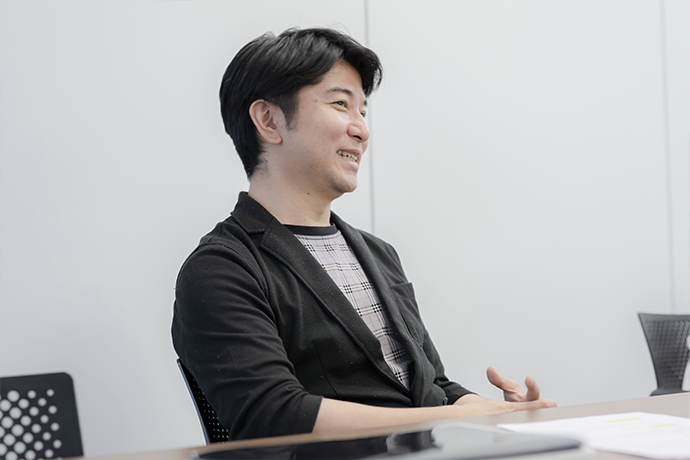
Cygames is still a relatively young company, having only been established eight years ago. What led you to think improvements were already required?
Shuichiro: From my experience in freelance and in various large, medium, and small companies, I can say that when people stop asking why things are the way they are, that organization starts to deteriorate and cease to function.
Since I first joined, Cygames has been a company that’s aggressively taken on various challenges. When I started thinking about exactly what was required to maintain our speed of growth and our ability to take on challenges in the future, I felt that the key lay in avoiding complacence and stagnation.
Masaru: Cygames doesn’t suffer from any particularly serious issues at the moment, but there’s meaning to the history we’ve established in the short eight years since our founding, and people place importance in it. Considering the number of employees will continue to increase, it’s going to become more and more difficult as time goes on to change the structure of the company. With that in mind, I think it’s vital to start nurturing a department that can take a broader look at the company and content.
The improvement guys today: working to improve an organization of more 2,400+ people.
What kind of improvements does each department make in their day-to-day operations?
Shuichiro: Things start when someone working in the company approaches us. People come to us for all sorts of things, including requests for tools and improvements to workflow. After that we conduct interviews to gather information. The Development Productivity department places the most significance on these interviews. For example, if someone asks us to make a specific tool, it’s actually pretty simple to make what they want.
But that’s nothing more than a surface solution. Real improvements only come from asking questions like “Why is that tool needed?”, “Are there any other ways to solve the problem?” By doing so, we seek to make clear the reasons why improvements are required.
After that, we consider the required tools or processes, plan and test services to introduce and develop tools, propose new processes, and so on.
Masaru: Of course, things don’t always flow that smoothly. As we proceed, we’ll sometimes realize we were going in the wrong direction, or sometimes the proposal just can’t be completed. In those instances we search for any possible way to make even the slightest improvements.
There are also many cases where the complicated interaction of both tool development and process improvement comes into play. These instances involve careful collaboration between the Development Promotion Office and Common Project Foundation. We’re basically pretty involved in each other’s work.
Can you share with us an example of an actual improvement you’ve made?
Masaru: For something the whole company uses, there’s our storage service CyResource. It allows materials created in various file formats to be uploaded and viewed, and the materials are also searchable using freely input words or tags.
This service was created due to a request from Cygames staff for a service allowing internal lecture materials to be managed. It’s currently used not only for the management of internal lecture materials, but also image files for created content, audio files, and training materials. The ability to also view files makes it useful for sharing knowledge and information internally.
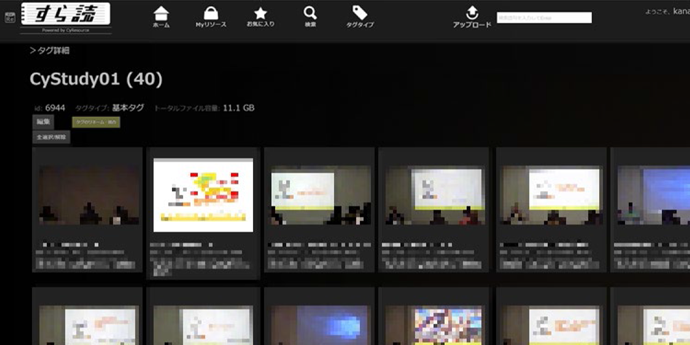
An example of something created both to improve workflow and as tool development would be our localization support service called CyLoc. It started with an inquiry from our localization department. We worked closely with the person making the request to gain an understanding of the localization workflow, and then created a tool that matched those needs.
In addition to implementing workflow support functions like a progress graph and a place for translation comments, the design interface enables access to be set by project roles, such as task assigner or localizer, so that each person can focus on their specific tasks. This special localization service is also used when dealing with collaborating companies outside of Cygames.
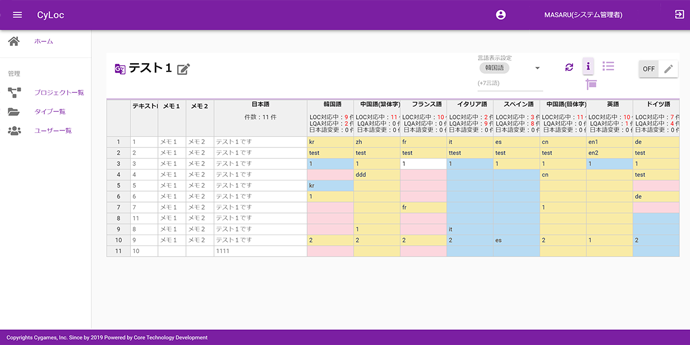
It sounds like these services were created in response to direct requests, which helps to keep them practical and allow them to be used right away! When do the both of you most feel like your work is worthwhile?
Shuichiro: When someone says our work has helped them so much. That makes me happy, and I feel that I’m glad we managed to do it. Personally, I also quite like the period of time when we sit down with the person making the request and brainstorm exactly what we can do. I’m very happy that our internal environment allows us to discuss how we can work together toward the goal of improving things. I really enjoy the process.
Masaru: I enjoy our work most in those moments when we reach the heart of the issue. Once you discover what needs to be done, you can think up any number of ways to solve an issue.
Shuichiro: Rather than getting caught up in sectionalism, the culture of Cygames revolves around everyone searching to find the best method together. Once we figure out what we need to do, Masaru is generally quick to get to work.
Masaru: I have an impatient personality, so I want to fix things as quickly as possible.
Shuichiro: Then, if things stop going well, he swings back to me in order to resolve it.
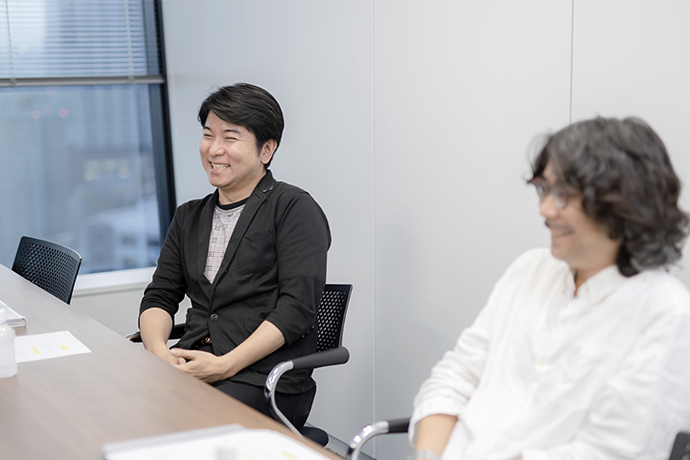
Masaru: You spotted that, did you? I think the two of us think about things in completely the opposite way. I take a direct approach, using whatever means will work and taking immediate action. Shuichiro considers the entire process up until the goal and is good at perceiving the required needs. We’re opposites, so I think we actually complement each other very well, like two runners in a three-legged race.
Finally, could you share with us your goals and hopes for the future of these two departments?
Shuichiro: For the Development Productivity department, I think there are still many latent issues and problems to be found in the workplace. I’d like to further enhance our collaboration with our employees to pick up further problems that we can address. We might be talking about grassroots stuff, but I think working on those little things can lead to the further growth of the company.
Masaru: Both the Core Technology Development and Development Productivity departments share a focus on progress, so I’d like for us to resolve issues more actively in the future. Cygames has and will continue to be supported by the content we produce, first and foremost with games. I think improving the environment and systems used to develop and operate that content is just another fundamental part of content creation.
The Development Productivity and Core Technology Development departments will continue to work with all parts of our company to improve Cygames so that we can produce the very best content.




